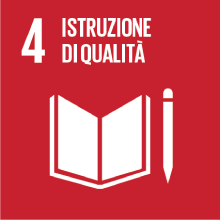FINANCIAL MANAGEMENT
- Anno accademico
- 2022/2023 Programmi anni precedenti
- Titolo corso in inglese
- FINANCIAL MANAGEMENT
- Codice insegnamento
- PHD047 (AF:402246 AR:218830)
- Modalità
- Crediti formativi universitari
- 6
- Livello laurea
- Corso di Dottorato (D.M.45)
- Settore scientifico disciplinare
- SECS-P/11
- Periodo
- 3° Periodo
- Anno corso
- 1
- Sede
- VENEZIA
- Spazio Moodle
- Link allo spazio del corso
Inquadramento dell'insegnamento nel percorso del corso di studio
Part A - Introductory classes
Module 1 - Foundations of financial management
It provides fundamental notions of finance: risk premium, risk adjusted returns, capital structure of the firms.
Teaching method: frontal lectures.
Part B - Thematic research-oriented modules
These modules introduce specific themes whose interest lies either on the way issues are afforded (for example behavioral finance) or on their current relevance (for example, sustainable finance).
The modules will be the following:
• behavioral finance;
• entrepreneurial finance;
• fintech and funding;
• sustainable finance.
Teaching method: frontal lectures and guided class discussions.
More specifically, each module will be composed by:
- frontal classes taught by the professor introducing the topic, highlighting its main features and the most relevant research questions: why and how they are studied and what we know about them;
- classes where the professor guides the discussion about specific research papers.
Module 2 - Behavioral finance
Behavioral finance is a relatively new field of research which has changed the way of approaching to financial decision making. It has introduced, besides the prescriptive approach showing what rational people should do, a descriptive approach depicting how people actually behave. The comparison between the approaches results in systematic differences of the actual behavior from the rational one. The relevance of behavioral finance is widely recognized and it offers new insights in empirical finance.
Module 3 - Entrepreneurial finance
Entrepreneurial firms are recognized as important drivers of innovation and employment. Their funding, even though may resemble the one of mature firms, shows specific challenges that calls for a separate research area. The challenges are empirically relevant because matching funding needs with the right funding source has a great impact on the success of the firms.
Module 4 - Fintech and funding
Fintech refers to the interactions between new technologies and financial services, both investing and funding. The module deals with the structuring of new funding sources and how they affect funding needs and trajectory of firms.
Module 5 - Sustainable Finance
Sustainable finance studies how finance (investing and funding) interplays not only with economic and financial issues, but also with social and environmental ones. Finance has often been accused to move companies towards a short term profit orientation: sustainable finance corrects this bias introducing a long term orientation where economic objectives are set together with the social and environmental ones.
Part C – Active learning
In this module students are the main players. They will present and discuss the project work developed during the course. The nature of the project work will be different for PhD students and Master’s students.
PhD students
Each student will present and discuss a paper assigned at the beginning of the course by the professor (document in power point format).
If a student has a specific interest on the topics of the course he/she may develop a research project following guidelines below.
Master’s students
Each student will present a draft of a research project (in power point format). The project will be chosen in the first part of course upon approval of the professor. The research project can be the first part for the Master’s thesis.
Risultati di apprendimento attesi
They will also learn to write and present a structured analysis of a research paper (PhD students).
Master's students will be encouraged to write and present a research proposal as a first step of a thesis project.
Prerequisiti
Contenuti
Module 2 - Behavioral finance
Module 3 - Entrepreneurial finance
Module 4 - Fintech and funding
Module 5 - Sustainable Finance
Module 6 - Active Learning: presenting and discussing a research article/project.
Testi di riferimento
Modalità di verifica dell'apprendimento
Students have to write a short essay (< 2000 words, references excluded) on the paper/topic presented in class, following this structure:
- Introduction and brief summary;
- Literature review (already in the article, but also beyond it);
- Unsolved issues, open problems, extensions, food for thought.
The essay is delivered after the end of the course within a deadline agreed on with the professor.
The grading will consider both the in-class presentation and the essay.
Master’s students
Students will deliver a written draft of a research project (< 2500 words, references excluded). The draft comprises:
- A short introduction where student explains in short the project and the research idea;
- A literature review on the topic;
- A concise design of the empirical research which will be carried out. Of course this part is just preliminary.
The draft is delivered after the end of the course within a deadline agreed on with the professor.
The grading will consider both the in-class presentation and the research draft.
Modalità di esame
Metodi didattici
Obiettivi Agenda 2030 per lo sviluppo sostenibile
Questo insegnamento tratta argomenti connessi alla macroarea "Capitale umano, salute, educazione" e concorre alla realizzazione dei relativi obiettivi ONU dell'Agenda 2030 per lo Sviluppo Sostenibile


